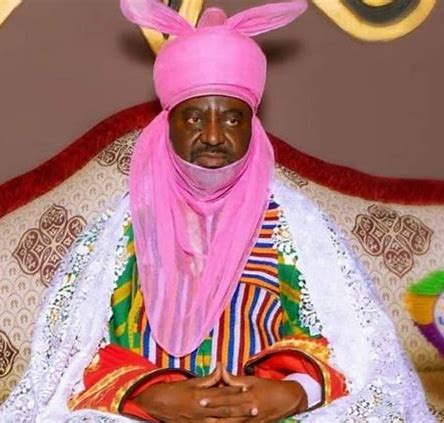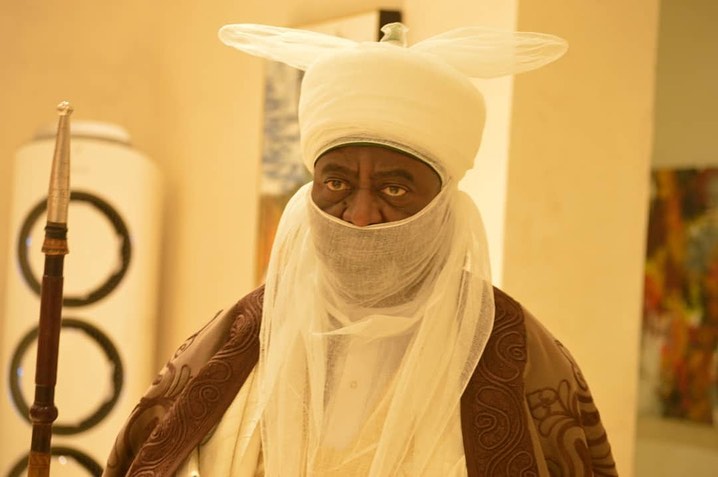For the deposed Kano Emir, Aminu Bayero, it was not a matter of if but when. The moment the Supreme Court upheld Governor Abba Yusuf’s election in January, Bayero knew the governor would need the throne to pay his debt.
During the campaign, the governor promised that if he were elected, he would revoke the sharing of the Kano Municipal Emirate between two Bayeros among the four new emirs and restore the throne’s singular pre-eminence.
Of course, he won. But before the ruling of the Supreme Court in January affirming his election, two lower courts had ruled in favour of the APC candidate, increasing the probability that Yusuf might not get it.
But Yusuf defied the trend and got it. Since then, Aminu Ado Bayero has taken his case to virtually all notable traditional rulers in the country, begging them to beg President Bola Ahmed Tinubu to save him. His last visit was to the Awujale of Ijebuland, Oba Sikuru Adetona. Neither the Awujale, the Sultan, nor any other traditional rulers he had visited could help.
The throne would be used to pay a debt foretold.
Nearly there
But the re-instated Emir of Kano, Sanusi Lamido Sanusi, is not sitting pretty yet. Not even one side of his royal buttocks is hugging the throne in the main palace yet. He’s currently in a holding room, besieged by orders and counter-court orders about what should happen next.
A young man genuinely surprised by the drama in Kano asked what the fuss was about. Why should the country almost come to grief over who of two cousins – with ties and friendships that run deep – would become the emir? It’s a fair point.
There was a time in this country when the business of chiefs, obas, emirs—or any traditional rulers, by whatever description or name—was the concern of local governments.
How they were appointed, kept or removed was local. Their relevance or longevity depended mainly on how their communities perceived their compliance with the customs and traditions.
Burden of a legacy
Colonial rule exploited and undermined the system. However, the more significant damage was inflicted by the long years of military rule, which emasculated the states and local governments through a centralised system of administration that left the units bereft. Successive politicians have only paid lip service to federalism.
After the civil war and the national trauma that followed it, the military recruited traditional rulers, amongst others, to help heal the country and deepen their own legitimacy. They courted the institutions, propped them up, and invested them with responsibilities that made them more prestigious, prominent, and powerful.
A number of soldiers, especially from the North, where the traditional institution had grown from colonial rule to become something of a vital centre of political and religious authority, soon took traditional titles to reinvent and perpetuate their control, complete with the feudal and anachronistic levers of power.
Game of Thrones pro-max
A young man born into a modern world of merit, innovation and competence is right to question the sense in a country that advertises itself as a republic but is still obsessing over a wayward, neo-medieval concept called monarchy. The only thing that imitates what is happening in Kano is the fantasy TV series, “Game of Thrones”, based on George R. R. Martin’s book, A Song of Ice and Fire.
But that’s precisely the point about the pathology of the monarchy. Throne rule may be extinct in France and parts of Europe where monarchs paid for feudalism with their heads hoisted on spikes by wild mobs or it may be seriously challenged in a few remaining bastions like Britain, but the drama, the complex themes of power, loyalty and betrayal, remains a reality of our daily existence. That’s why Kano obsesses.
Powers behind the throne
Sanusi and Bayero fancy themselves as the centre of the drama. They’re not. Both men and their supporters are grist in a vast and complex power mill grinding through the heart of the politics of 2027 and beyond in the North. Whoever wins now will still yield the throne to pay a future debt.
It’s not Sanusi v Bayero. Or some karmic payback either way. It’s the leader of the NNPP Rabiu Kwankwaso v Abdullahi Ganduje and a few key members of President Ahmed Bola Tinubu’s cabinet who want to lead the North in 2027.
One insider described what is happening as a “skirmish”, insisting that the battle, which obviously consumed former Kaduna State Governor Nasir El-Rufai, is only just beginning.
Coming war
After President Muhammdu Buhari’s catastrophic tenure and former Vice President Atiku Abubakar’s serial futile attempts at taking the presidency, the North has been asking itself if this is indeed the best it can offer. That soul-searching is at the heart of the jostling to produce credible leadership that can rally the region, if not for the next four years, then certainly for the next general election cycle.
In this coming battle, any potential contender who shows his hand early on may not be politically alive to tell the story. But that will not stop politicians from trying to succeed where El-Rufai was ambushed.
Kwankwaso is one such politician. With the victory at the governorship polls, he regained his political footing in Kano, the largest vote bank in the North-West, where his successor betrayed him. He has been trying, without much success, so far, to trash Ganduje, the chairman of the ruling All Progressives Congress (APC).
What Kwankwaso may need to reinforce his grip as the potential pre-eminent political leader in the North, is to secure control of the Kano emirate. Whether given Sanusi’s own volatile history Kwankwaso would find him serviceable in this task is another matter. What is clear is that of the two devils, one is preferred.
Once the emirate is settled, Kwankwaso will return to the immediate task of worming his way into the ruling party. Why would he prefer the ruling party to the prospects of a mega-merger of PDP, LP and others? Because it’s a joke that offers no serious pathway to power, and those mooting the idea know it. Kwankwaso, too, knows it.
Why this skirmish matters
But he also knows that the only thing more combustible than having FCT Minister Nyesom Wike and Rivers State Governor Simi Fubara in one room is having Kwankwaso and Ganduje in one room. The combatants, with the referee and spectators, are guaranteed a bloody ending. That’s why, after lining his political and monarchical ducks in a row, Kwankwaso’s next stop is Abuja.
Ganduje knows that this is a fight for his political life. And even though forces around the president detest Ganduje, they are united on the matter of blocking any potential leader from the North who is currently outside Tinubu’s inner circle. There’s no guarantee they would succeed but they won’t fail for lack of effort.
As it was in the “Game of Thrones”, expect more surprises, more twists and turns, more convenient alliances, treachery and betrayals. The monarchy may be damaging itself either from within or from outside pressure, but the lessons it teaches about power, about its absolutism and ephemerality, remain for all who have eyes to see.


